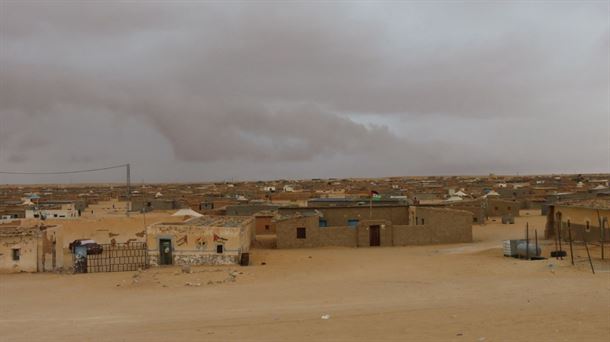ERC this Saturday in its 29th National Congress approved by practical unanimity a new political roadmap that, among other things, clearly supports the agreed referendum and establishes what the minimum conditions should be.
These are the ten keys of the Republicans’ political document, entitled “The Democratic Way of the Referendum”, which was approved by 632 votes in favour, 7 against and 14 abstentions from the militants.
1) Bet on dialogue and the agreed referendum. Describing themselves as pro-independence and “referendistas”, the Republicans reaffirm their commitment to the agreed referendum as it is “the best way” to achieve independence with “the legitimacy and validity it needs to be accepted internally and internationally approved”.
In addition, it justifies the negotiating table with the state and the “historic achievement” that the abolition of the crime of sedition entails, although it makes clear that the ultimate goal of this process of de-judicialization is amnesty and self-determination, for which the independence movement’ stronger’ and obtain large majorities.
2) Clarity agreement with the Canadian. The document highlights Catalan President Pere Aragonès’s proposal to promote a Clarity Agreement, following Canada’s path with Quebec: “It is the main path for Catalonia to vote again for an effective referendum and end the conflict to solve.”
It would be a two-stage process: first, an internal debate in Catalonia with pro-independence actors, but also “non-independence or pro-sovereignty Catalanists”, to “unify criteria and establish bases and conditions for a referendum “; and once that “country proposal” was articulated, it would go to the negotiating table with the state to agree on that hypothetical consultation.
3) The Montenegrin formula. In anticipation of this future debate, the ERC outlines its own referendum proposal, based on the Montenegrin formula, recalling that “it received European support, after being discussed and recognized multilaterally by Montenegro and Serbia, as well as by the EU”.
That formula would go through a referendum with a “clear question” and a binary answer; all residents of Catalonia over the age of 16 and non-residents who have the right to vote in Catalan elections can vote; and the triumph of independence would require a participation of at least 50% and 55% “yes”, after which a negotiation process would be opened “in good faith” between Catalonia and the state, with European and international mediation.
4) The lessons of 2017. ERC views the October 1 referendum as a “collective exercise of peaceful and democratic disobedience”, but admits it must be “fair” with factors that opposed it in 2017, such as “the lack of international recognition, the unionist mobilization of hostile and threatening character, the state offensive in the form of political repression and the lack of participation of some social, political and institutional actors”, “unforeseen” events that the party “will take into account on future occasions”.
5) Alliances with the Spaniards left before PP and Vox. Faced with a hypothetical “Spanish right-wing” government in the next Spanish legislature, ERC defends the forging of international alliances, but also “interweaving strategies with the Spanish left and with other stateless nations” in Spain and especially with sovereignist organizations from the “Catalan Countries”. “.
6) Antidote to the anti-political pro-independence discourse. In contrast to “partisanship and short-lived tactics”, the newspaper justifies diversity as a force of the independence movement and calls for an end to “polarisation” and “hate speech of a xenophobic, anti-political nature and which undermines its own institutions and in question puts the social jeopardize cohesion”; Against this, he positions ERC as an “antidote”.
7) Against the B-40 and the expansion of the airport. During full budget negotiations and days after, trying to unravel an agreement, ERC gave in to the PSC and agreed to run the B-40 del Vallès. management lessons from those who have always run Renfe and made it into its current chaos or defend anachronistic projects imposed by the state, such as the Fourth Belt or the airport expansion.
8) Municipal elections with Barcelona in sight. May’s elections are also present in the document, which relies on “a giant leap” in the metropolitan cities and a victory in Barcelona; In addition, ERC “prioritizes” agreements in town halls and local entities with pro-independence or “self-determining” parties that accept that municipalities are working towards independence.
9) Good governance to achieve independence. For ERC, the best way to achieve independence is through “good governance” and demonstrating the utility of “purely Republican” policies: this means assuming all possible government responsibilities and an agenda characterized by decent work, green reindustrialisation, the effective right to housing, feminism or the 2030 Agenda as an environmental reference.
10) Avoid the “minorisation” of Catalan. To these points is also added the promotion of Catalan as the “backbone of social cohesion” and “own language” of Catalonia; but ERC warns that “changes in demographics and in the consumption of cultural goods have led to Spanish being the main language of socialization”, and therefore urges that this trend be reversed so that Catalan does not become a “minor” language. .
(function(d, s, id) {
var js, fjs = d.getElementsByTagName(s)[0];
if (d.getElementById(id)) return;
js = d.createElement(s); js.id = id;
js.src = “//connect.facebook.net/es_ES/sdk.js#xfbml=1&version=v2.8”;
fjs.parentNode.insertBefore(js, fjs);
}(document, ‘script’, ‘facebook-jssdk’));
Source: EITB
I am Ida Scott, a journalist and content author with a passion for uncovering the truth. I have been writing professionally for Today Times Live since 2020 and specialize in political news. My career began when I was just 17; I had already developed a knack for research and an eye for detail which made me stand out from my peers.



